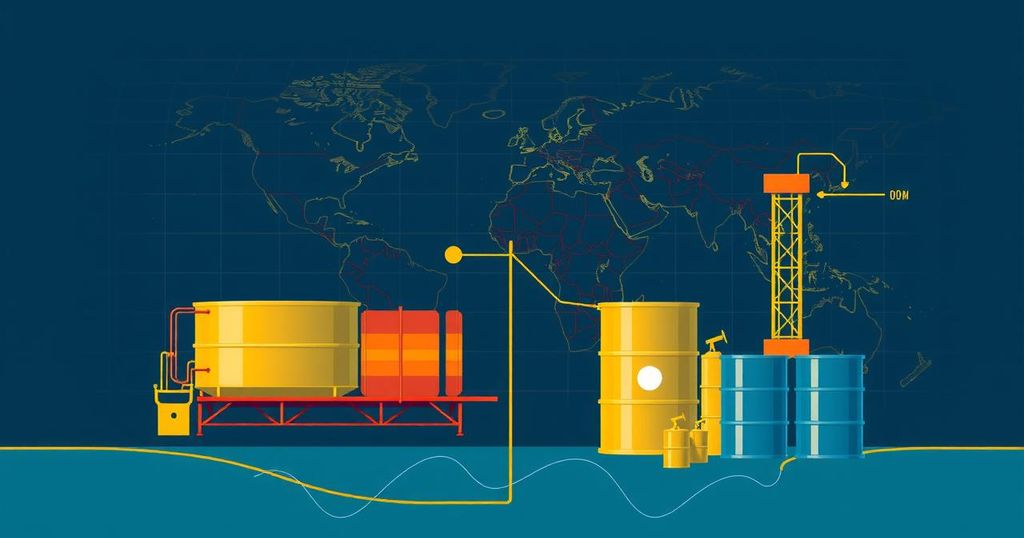Trump’s Tariffs on Venezuelan Oil Buyers: Implications for Global Trade
President Trump has announced a 25 percent tariff on imports from countries purchasing Venezuelan oil, impacting economies such as China and India. Set to take effect on April 2, the tariffs are part of Trump’s broader economic agenda post-return to the White House. The decision may heighten global trade uncertainty and is influenced by recent diplomatic tensions between the U.S. and Venezuela.
United States President Donald Trump has announced significant tariffs targeting countries purchasing Venezuelan oil and gas. This policy shift, implemented since his return to the presidency in January, aims to utilize trade measures for his economic agenda and diplomacy. The newly proposed 25 percent tariffs are anticipated to impact substantial economies, notably China and India, further heightening global trade uncertainty.
Effective from April 2, the tariffs will be applied to both direct and indirect importers of Venezuelan oil. The Secretary of State, in collaboration with other U.S. agencies, holds the authority to enforce these levies, as reported by various experts. Currently, Venezuela exports oil to several nations, including China and the United States, which could face repercussions from this new policy.
In February, Venezuela supplied around 500,000 barrels of oil per day to China and an estimated 240,000 barrels per day to the United States. Trump’s proclamation of April 2 as “Liberation Day” emphasizes his resolve to apply reciprocal tariffs on trade partners, aiming to rectify what is regarded as unfair trade practices by Washington.
The President explained that the tariffs stem from Venezuela’s alleged hostile actions towards the United States and its citizens. He mentioned in his announcement that the tariffs could serve as a means of address against these actions, labeling them as a “secondary tariff.” Moreover, the 25 percent tariff will remain in effect for one year from the last importation of Venezuelan oil, unless an early reassessment by Washington occurs.
Trump’s recent tariff announcement follows the suspension of a deportation pipeline between the United States and Venezuela, leading to heightened tensions between the two nations. The circumstances surrounding deportations may further influence diplomatic relations and trade discussions moving forward.
In conclusion, President Trump’s announcement of tariffs on Venezuelan oil buyers is poised to affect major economies like China and India significantly. These tariffs not only reflect Trump’s ongoing efforts to reshape trade relations but also underscore the complexities involved in U.S.-Venezuela relations. The potential economic implications for key oil-supplying nations signify a proactive approach to economic diplomacy, emphasizing the critical need for monitoring global trade dynamics amidst these developments.
Original Source: www.hindustantimes.com








Post Comment